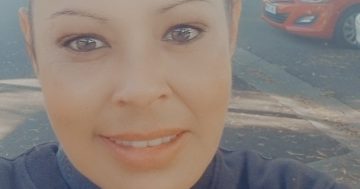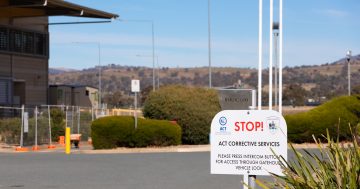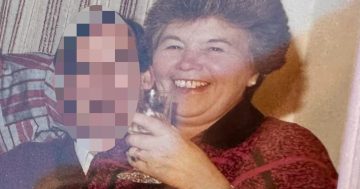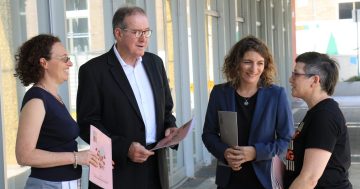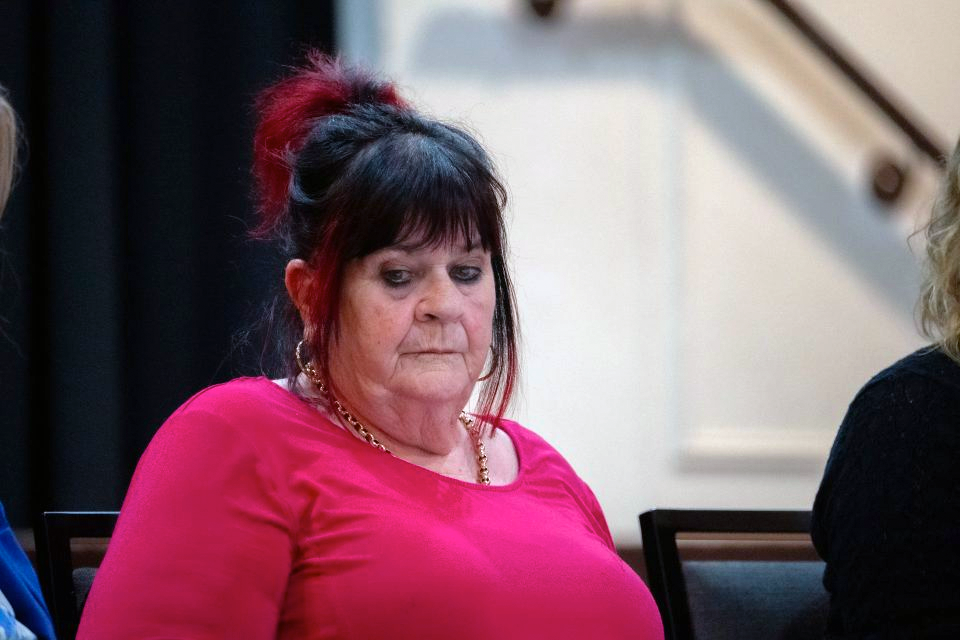
CEO of Winnunga Nimmityjah Aboriginal Health and Community Services, Julie Tongs. Photo: Dominic Giannini.
CONTENT WARNING: this article contains details some may find distressing.
“The community is in complete shock. They are devastated, particularly men and women who have been incarcerated. TJ’s life mattered. It mattered to his family, it mattered to me and it mattered to his community. And his death was entirely preventable.”
Last weekend TJ Dennis, a young Aboriginal man and prisoner, took his own life in a NSW jail cell. His name is being used with permission.
Julie Tongs, who is CEO of Winnunga Nimmityjah Aboriginal Health Service and regarded Mr Dennis as part of her own extended family, is calling for an immediate inquiry into why a vulnerable young man with extensive, complex mental health issues was moved around ACT and NSW correctional systems without specialist care.
She said Mr Dennis should have been in a secure mental health facility after receiving an evaluation in 2018 from Winnunga’s head of medical services Dr Nadeem Siddiqui and the centre’s resident psychiatrist that pointed to profound mental health issues arising from an “extremely traumatic” childhood.
Mr Dennis had attempted suicide on a number of occasions while in the Alexander Maconachie Centre but his family and carers were told he could not be accommodated in Dhulwa, the ACT’s secure mental health facility.
Ms Tongs said their strong recommendation was for transfer to Long Bay Gaol’s secure unit as the only feasible alternative but Mr Dennis was instead incarcerated at multiple sites across NSW before ending his life in Silverwater.
In 2018, it’s alleged that he was the subject of a ‘hangman’ game played by staff at the AMC, where stick figures on a boat were depicted celebrating a man hanging nearby. The incident was reported to the ACT Human Rights Commission, although Mr Dennis’s name was redacted, and the ACT Corrective Services Commissioner described it as “abhorrent” and “extremely disappointing”.
“He was treated as less than human as far as I’m concerned,” Ms Tongs said. “I’m sick of people coming and asking for advice then not taking it. This tragic death needs to be unpacked not just by the NSW coroner but also by ACT Correctional Services.
“TJ was an ACT prisoner in a NSW prison, the ACT would have been paying to have him kept in NSW. Why didn’t they stipulate that he needed intensive mental health care? Where’s the ACT’s duty of care?”
Ms Tongs said that Mr Dennis had spent extensive time in solitary confinement despite his well-documented and serious mental health issues.
She is calling for an independent inquiry into the circumstances of his death.
“I think the governments need to have a better look at this and the courts need to understand locking people up with serious mental health issues is not the answer. Building more prisons is not the answer. We need secure drug and alcohol rehabilitation centres.
“People complain about being locked down in COVID and how hard it was on them. What about these defenceless people who are really, really unwell – what support do they get? Nothing.”
Ms Tongs said that prisoners with diagnosed complex and severe mental health issues require a balance of services between corrections officers, health staff and specialist addiction services.
The ACT Government said in a statement that Mr Dennis had requested the transfer to NSW, which it agreed to after careful consideration, but an inquiry would be the responsibility of authorities in NSW.
“The ACT Government acknowledges the terrible sadness of the death of a man in NSW, our thoughts and condolences are with the deceased’s family and friends,” it said.
“While NSW authorities investigate the death, it is inappropriate for the government to make any comment, other than to say death in any circumstances is tragic.”
Ms Tongs, who was last in contact with Mr Dennis a few days ago and spoke to him every week, says it’s not enough.
“I go from anger to distress and back again. All he wanted was for people to love and care for him.
“If we’d had access to better services in his childhood, he would have had a different outcome. But TJ is dead – he hasn’t got a voice now, he can’t tell people but I can and so can his family and people in his community. His life wasn’t in vain.”














